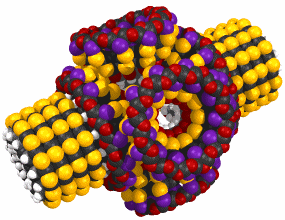--h! I am Flordelice L. Ricablanca, a third year student of Central Mindanao University taking up Bachelor of Science in Information Technology.
Other might say I am hard to be with, the common first impression at me in vernacular is "Maldita mag dagway ui, murag dili ma approach, cge rag mog.ot".. but they just don't know the real me. I'm just looking strict outside but very friendly inside. Though it is an old quote but its still works "Don't judge the book by it's cover" Know the person better inside, not just in the factors that can only be seen by your naked eyes, if it will be going to apply in IT field its just like in every hard codes there's beauty and art behind it, it is more useful when you used to run it not just by staring or looking at it, for by just staring at it will lead you to confusions but analyzing it well leads you to clarity.
I always want to live my life in the simplest way as possible, I don't like things to get complicated. I manage to live my life as what I like it to be, it's just like designing the Interface or the theme of your desktop, changing it to something that is compatible in your style.. don't force to post something that can make you fell uncomfortable. Sometimes, I used to ignore problems, it's not that I'm afraid to face it but its just I don't want to carry it with me.. Ignoring it makes me fell better than thinking about it. I still want to continue and explore life, for in my own perception I can find the solution in that certain problem in one portion of my life's journey. "In every virus, there will always be an anti-virus to fight it and will moved it to quarantine". You need to scan every events or happenings that comes in your everyday life in order for you to prevent too much infection from dangerous viruses, but we must not forget the creator of all.
I want to be an expert in making programs in related to my field, I'm not so sure about it for I am just getting started but studying and working for it makes it not just a statement but a reality. I need to work hard for it!.
I'm giving my trust to the system analyst of every life "GOD" :)
God bless viewers!! :))
Friday, July 22, 2011
Billionth of a Meter
A basic definition: Nanotechnology is the engineering of functional systems at the molecular scale. This covers both current work and concepts that are more advanced.
In its original sense, 'nanotechnology' refers to the projected ability to construct items from the bottom up, using techniques and tools being developed today to make complete, high performance products.
- Nanotechnology is the understanding and control of matter at the nanoscale, at dimensions between approximately 1 and 100 nanometers, where unique phenomena enable novel applications.
- Encompassing nanoscale science, engineering, and technology, nanotechnology involves imaging, measuring, modeling, and manipulating matter at this length scale.
- So how small is "nano"? A nanometer is one billionth of a meter. A sheet of paper is about 100,000 nanometers thick. And there are 25,400,000 nanometers in one inch.
When K. Eric Drexler (right) popularized the word 'nanotechnology' in the 1980's, he was talking about building machines on the scale of molecules, a few nanometers wide—motors, robot arms, and even whole computers, far smaller than a cell. Drexler spent the next ten years describing and analyzing these incredible devices, and responding to accusations of science fiction. Meanwhile, mundane technology was developing the ability to build simple structures on a molecular scale. As nanotechnology became an accepted concept, the meaning of the word shifted to encompass the simpler kinds of nanometer-scale technology. The U.S. National Nanotechnology Initiative was created to fund this kind of nanotech: their definition includes anything smaller than 100 nanometers with novel properties.
Much of the work being done today that carries the name 'nanotechnology' is not nanotechnology in the original meaning of the word. Nanotechnology, in its traditional sense, means building things from the bottom up, with atomic precision. This theoretical capability was envisioned as early as 1959 by the renowned physicist Richard Feynman.
"I want to build a billion tiny factories, models of each other, which are manufacturing simultaneously. . . The principles of physics, as far as I can see, do not speak against the possibility of maneuvering things atom by atom. It is not an attempt to violate any laws; it is something, in principle, that can be done; but in practice, it has not been done because we are too big. — Richard Feynman, Nobel Prize winner in physics."
Based on Feynman's vision of miniature factories using nanomachines to build complex products, advanced nanotechnology (sometimes referred to as molecular manufacturing) will make use of positionally-controlled mechanochemistry guided by molecular machine systems. Formulating a roadmap for development of this kind of nanotechnology is now an objective of a broadly based technology roadmap project led by Battelle (the manager of several U.S. National Laboratories) and the Foresight Nanotech Institute.
Shortly after this envisioned molecular machinery is created, it will result in a manufacturing revolution, probably causing severe disruption. It also has serious economic, social, environmental, and military implications.
Subscribe to:
Comments (Atom)


